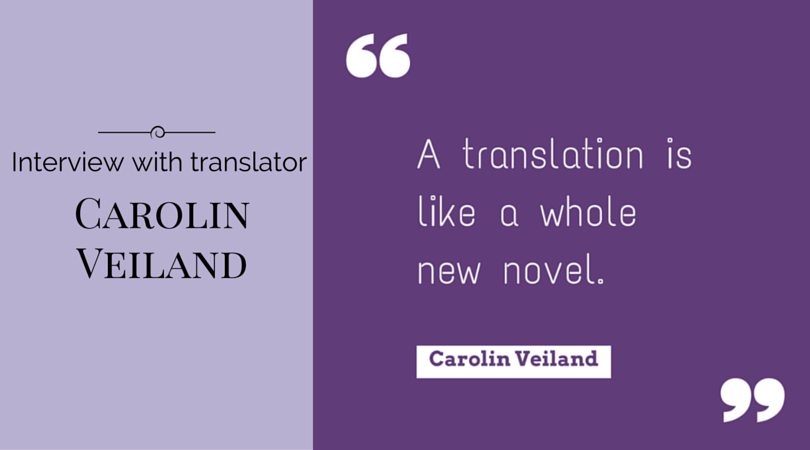Ask the Translator – Carolin Veiland on copyright, royalties, and the importance of proofreading

Carolin Veiland, Rogue Translations
Carolin Veiland (Rogue Books) is a young and motivated translator, who loves to work with indie authors. She’s been my proofreader on several projects, and I’ve come to appreciate her dedication and creativity.
If you are looking for a great German translator in the following genres: Young Adult/New Adult/Adult – Contemporary Romance, Paranormal (Romance), Fantasy, Erotica, Gay/Lesbian – definitely go check out her services.
This interview is short, sweet, and to the point.
Why do you like to work with indie authors?
Because I love the concept of indie, as simple as that. And I feel that indies are a lot closer to their fans than authors working through publishers, even though it’ll clearly not work in the same capacity with a translation.
What are the most important things to look for in a translator?
A translator should always translate into their mother tongue, and have a proofreader to back him/her up. If a translator is very experienced with their second or even their third language, like I am with English, and translates into them, it can be done but then the proofreader will most likely have to do a larger part of editing too – compared to when the translator is working into their mother tongue. So basically, you should watch out if the translator works with or insists on a second pair of eyes on the text, that’s always a good sign.
How is the editing/proofreading of translations handled?
It’s an absolute must, and handled by a native speaker of the target language, preferably with knowledge of the source language as well. Since a translation is like a whole new novel, it needs thorough checking, research, and several revisions to fit the target group in the target language.
According to German law, the translator holds the copyright to the translation. What does this mean for the author?
It sounds conflicting, but author and translator have to grant exploitation rights to each other to market. Translators can’t make the translation available without the indie author’s consent, since it’s originally their work, but the same applies vice versa. As the translator is the author of the translation, the indie can’t just take the translation and make it available to the public without the translators consent.
Are all German translators entitled to royalties, even when they are paid for the translation upfront?
German law states that the author shall receive “adequate remuneration”, and as the translator is the author of the translation, they are entitled to royalties the same way an author would be when working with a publisher: a down payment AND royalties. Since translators carry the risk of sales just as much as the author does when working indie, the risk has to be compensated with higher royalty rates when paying lower flat fees up front.
Would you like to add anything?
You could ask for a few pages as a sample from a translator, and find an independent proofreader to give you an opinion on the quality – if you can cover the costs, that is.
And, if possible, you should stick with the same translator, at least for books in a series. Especially avid readers notice different styles, even more so if they are familiar with the sound of the source language – I know I do. Then I wonder if it’s a screw up from the author, the translator, or the editor.


